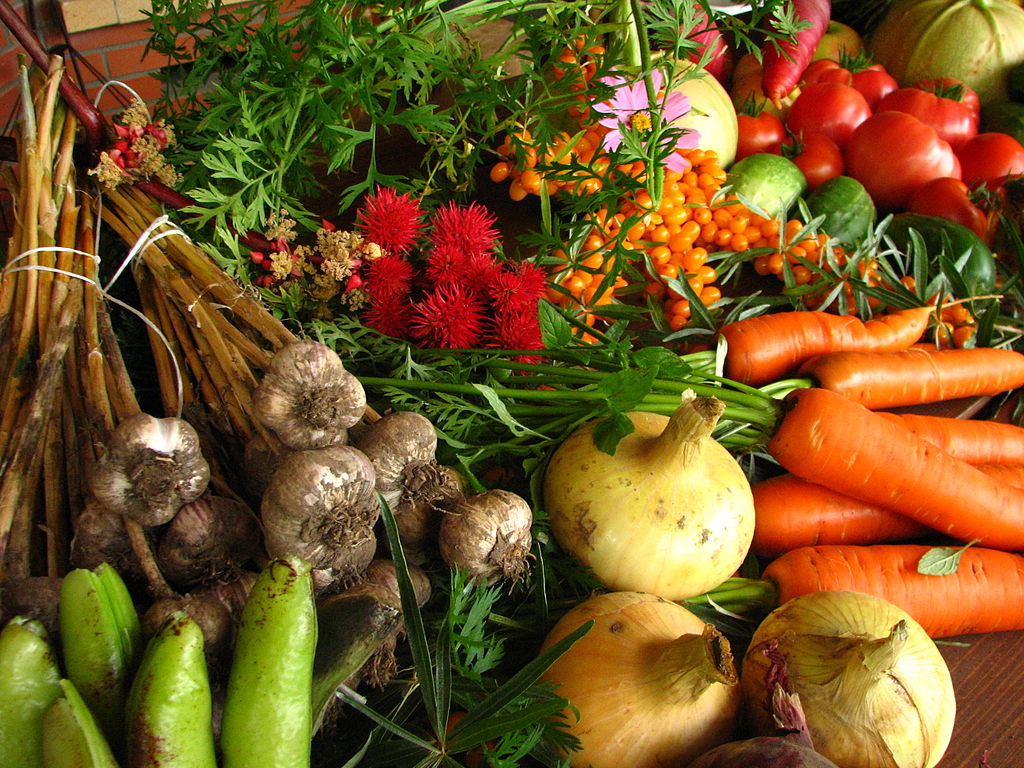Organic vegetables in the EU
European Commission preparing action plan to stimulate organic agriculture
Unprecedented growth has taken place in the EU organic market in the last decade and it now attracts annual turnover of about €20 billion. (DE: 6.6; FR: 3.8; UK: 1.9; IT: 1.7).
Nevertheless, vegetables represent a small part only – just 1.2% – of the EU’s organic crop area, with 110,955 ha out of a total 9.6 million ha in 2011.
Italy is the Member State with by far the largest area of organic vegetables (23,405 ha), followed by Germany with more than 18,000 ha, then France with 14,529 ha. The United Kingdom boasts 13,618 ha and Spain 11,483 ha.
13.6% of organic citrus crops in Italy, just 1.8% in Spain
Organic fruit crops cover 264,000 ha and account for just over a fifth of the main permanent organic crops with the biggest ones being olives and grapes.
The organic citrus sector has seen dynamic growth in the last 15 years in the EU though it is concentrated around just a few Member States: Italy, Greece, Spain and Cyprus.
The biggest citrus areas are in Italy (more than 21,900 ha) and Spain (around 5,856 ha in 2011 but increasing). Organic citrus represented 5.3% of the total citrus area in 2011 for the above-mentioned countries. In 2011, 13.6% of the total citrus area in Italy was organic compared to just 1.8 in Spain, the EU’s biggest citrus grower.
Market has quadrupled but control inadequate
Although the market has quadrupled in the last decade, EU production has not kept pace and the extra demand is met by imports.
There are also societal and consumer concerns not yet fully addressed, such as the sustainable use of energy and management of environmental impacts, animal welfare and pesticide residues.
Other issues include the myriad logos and shortcomings in the control system, such as with insufficient import inspection. Also, the production rules have been watered down and the risk of loss of consumer confidence is high.
New EU plan
As a result, the European Commission has now set three priorities:
– to increase competitiveness;
– to maintain and increase consumer confidence;
– to reinforce the external dimension of EU organic farming.
It allocated nearly €85 million for organic production under the 2014-2020 CAP budget.
Needed: centralised database, frauds made public
A centralised database for import certificates should be created. Documentary evidence could be a solution and exchange between the control actors should be increased. Fraudulent certificates should be published, a practice the U.S. Department of Agriculture already follows. Transparency could also be increased by using the name of the control body on labels instead of a code number and requiring accreditors to be trained at EU level.
More money is needed for promotion funds to attract consumers not currently buying organic products. The organic sector has done well so far but from now on the whole chain, from producer to retailer, needs to go a step further. More companies have to get involved and particularly big ones that can invest in research and development.
LH
Read full report available free here on page 38 of issue 33 of Eurofresh Distribution magazine
Photo of ecologically grown vegetables by Elina Mark (via Wikimedia Commons)


